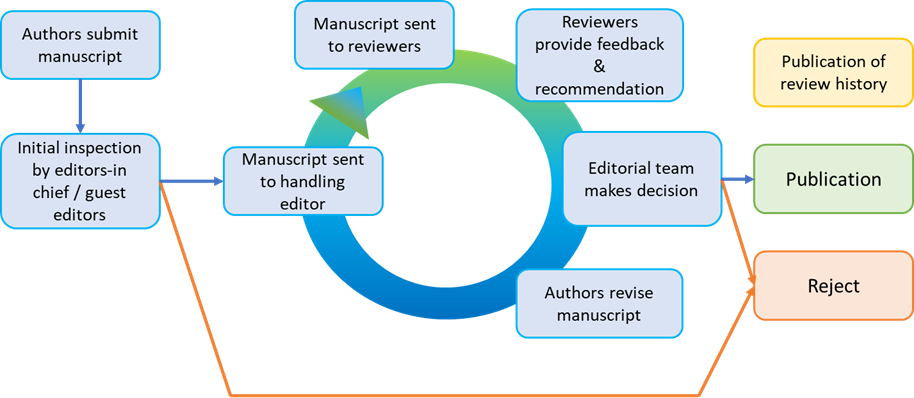General Information
- All manuscripts published in GEP will be reviewed by at least two reviewers, ideally representing different, diverse backgrounds such as location and career stage.
- GEP has an Open Review Policy (currently under implementation). This means that feedback from the reviewers to the authors, the authors’ replies, and the manuscript history are published alongside all published articles. Reviewers have the option to sign their reviews with their names to increase transparency. Signing is optional and the reviewer’s identity can be kept anonymous.
- Reviewers are asked to provide feedback to their assigned manuscripts within four weeks.
- Reviewers have to indicate if someone else assisted their review (a student or colleague).
- Option for recognition: To acknowledge the contribution of our reviewers, GEP publishes the names of those who have reviewed at the end of the year. The names will only be published if reviewers agree. Reviewer names will not be linked to any specific papers.
Review Process
All articles in GEP will first be assessed by the Editors-in-Chief or, in case of a special issue, the guest editor(s). If the manuscript complies with our Open Science and Diversity policies, is considered thematically relevant, and in line with the GEP acceptance criteria (see below), the manuscript will be forwarded to an Associate Editor who will then recruit reviewers. In case of a Special Issue, the Guest Editors will recruit reviewers. Based on the peer reviews, the Associate Editor will assess the submission and make a recommendation to the Editors-in-Chief. The Editors-in-Chief will then reach a final decision (rejection, revisions of some kind, or acceptance; see figure below). 
Acceptance Criteria
For GEP, the following manuscript review criteria are of highest priority:
- Rigour. Articles adhere to high ethical, scientific, and presentation standards (including structure, coherence, language, and accessibility for a wide audience). Empirical work has to adhere to GEP’s open science requirements. The theoretical reasoning and the derivation of research questions and hypotheses must be plausible and coherent. Design, material, methods, analytical approaches of empirical work must conform to recognized standards in the field (including ethical standards). All conclusions must be directly supported by the data.
- Relevance for Science. Articles shall advance scientific knowledge within environmental psychology (e.g., by solving an old problem in an innovative way or by addressing a new question). Negative findings, meta-analyses, and replication studies are encouraged.
- Relevance for Practice. GEP values contributions that provide insights that can help practitioners (e.g., educators, designers, policy-makers).
- Diversity.Efforts to increase diversity in environmental psychology are encouraged (e.g., non-convenient samples, authors from underrepresented populations).


